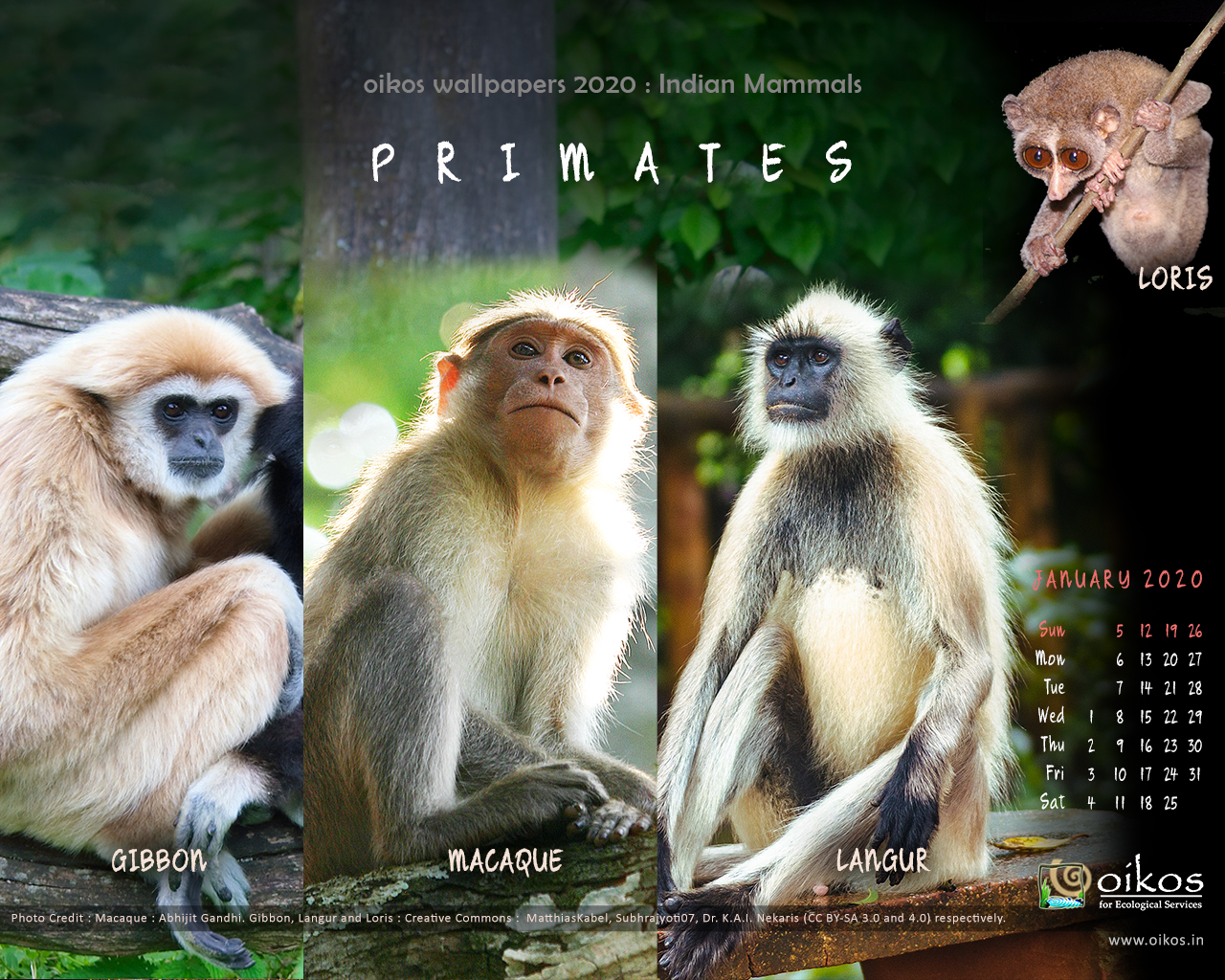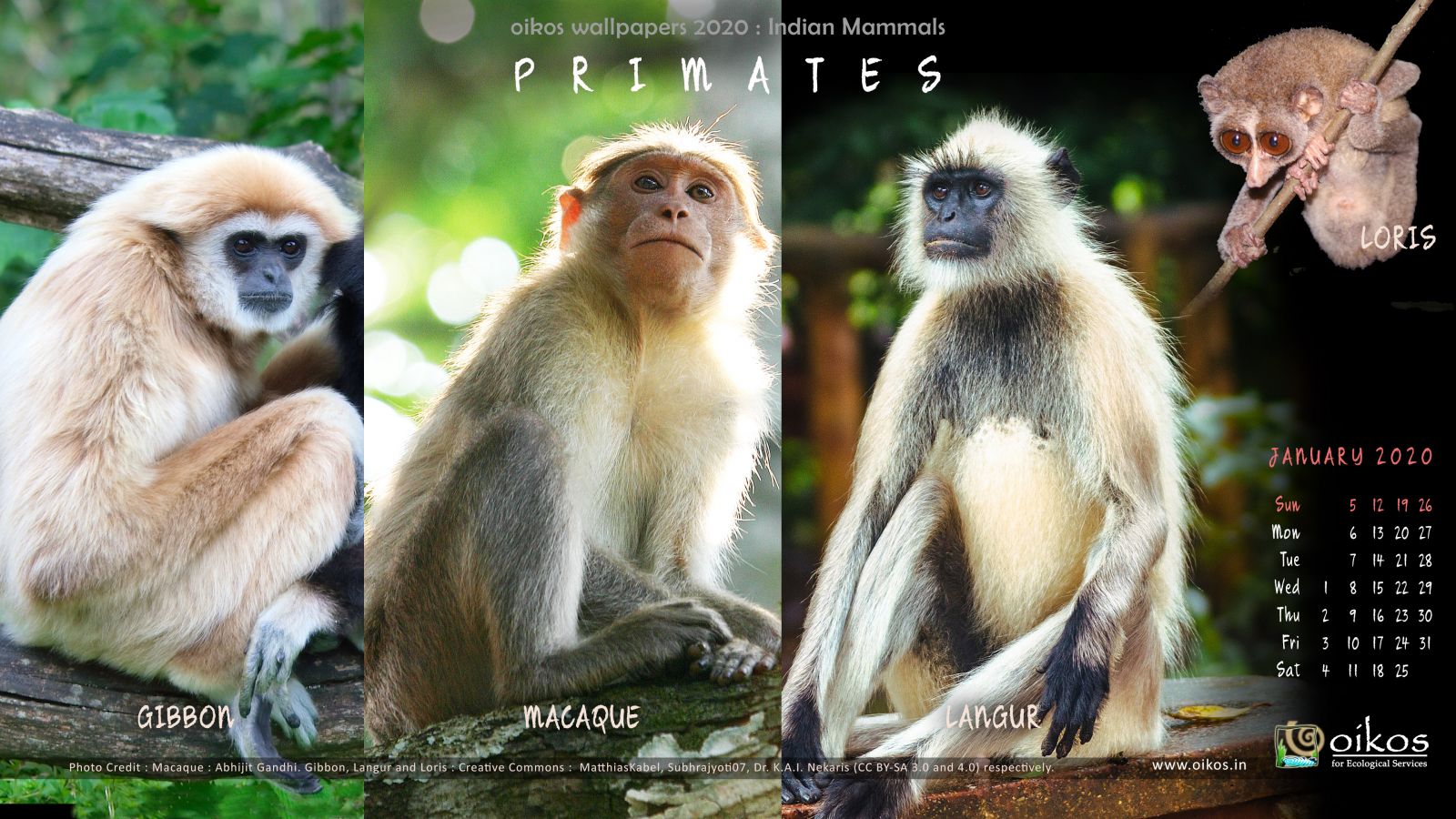Jan - 2020
Dear nature lovers,
Greetings from oikos !
And a very happy new year !
A Big Thanks to You for supporting this calendar campaign and being inspiration for the same.
In the year 2020, we bring a new theme - “INDIAN MAMMALS” with the 15th set of Wall Paper Calendars. Every month we will bring in a group of mammals along with its main identifying characters and few species.
In evolution, first mammals appeared after extinction of dinosaurs, then flourished in all possible niches. Main characters of mammals are presence of Mammary glands, hair and 4 legs with some exceptions like bats. India has around 400 mammal species occupying a variety of habitats and niches.
January 2020 : P R I M A T E S
Primates (latin primus = first rank) are the mammals with a distinct morphology like - front facing eyes, soft skinned, contoured palms, opposable thumb, ability to stand upright to varying degrees and mammae on chest.
Primates play specific roles in the food chain of being important prey base, seed dispersal agents, and act as an alarm system for large predators like tigers.
There are 190–448 species of living primates found all across the world but primarily in tropical latitudes of Africa, Asia, and the Americas. In India, we have around 25 species divided in mainly four groups -
- medium to long tailed, flesh colored face (with one exception) Macaques
- long tailed, black faced Langurs
- tail less, round-eyed Lorises
- tailless, lesser apes Gibbons
Various species of Langurs and Macaques altogether occupy entire India. But Gibbons are found only in North Eastern India and Lorises are found in North east and Southern India. Both Loris and Gibbons are endangered species due to its rarity, narrow range of distribution, habitat loss and forest fragmentation.
Most primates are omnivores, while some are herbivores. Of all primates, Rhesus, bonnet macaques and hanuman langur are found commonly in their range and change their food priorities drastically when in close proximity with humans. Feeding them with human food at temples and tourist destinations change their behavior, eventually becoming a threat to humans. Such human practices needs to be regulated. Habitat loss have also caused them stray into settlements, urban areas, and agriculture, causing conflict situations.
Raising awareness about them along with setting certain rules could be the first step to manage such conflicts.
Regards,
Ketaki & Manasi
With Team oikos !
Reference : Indian Mammals, A field guide by Vivek Menon
Reference : Indian Mammals, A field guide by Vivek Menon
Please Note -
This Email is a part of awareness campaign initiated by oikos, Pune. Write to us for your valuable feedback.
oikos have been sending ‘Desktop calendars’ since January ’06 with various themes, which can be downloaded from our website.
If you are not willing or not the correct recipient of this Email, kindly reply this mail with subject 'unsubscribe'.
Thanking you for your precious time.
Spread a word !! Forward to nature lovers !
Click on any of the desired options below to get appropriate image.
Save it to computer and set it as desktop background for your computer monitor.
Oikos for ecological services
Ph. 020-25451875
Web: www.oikos.in




